Sorbitol – Everything You Need To Know
This natural carbohydrate helps your body in more ways than you know.
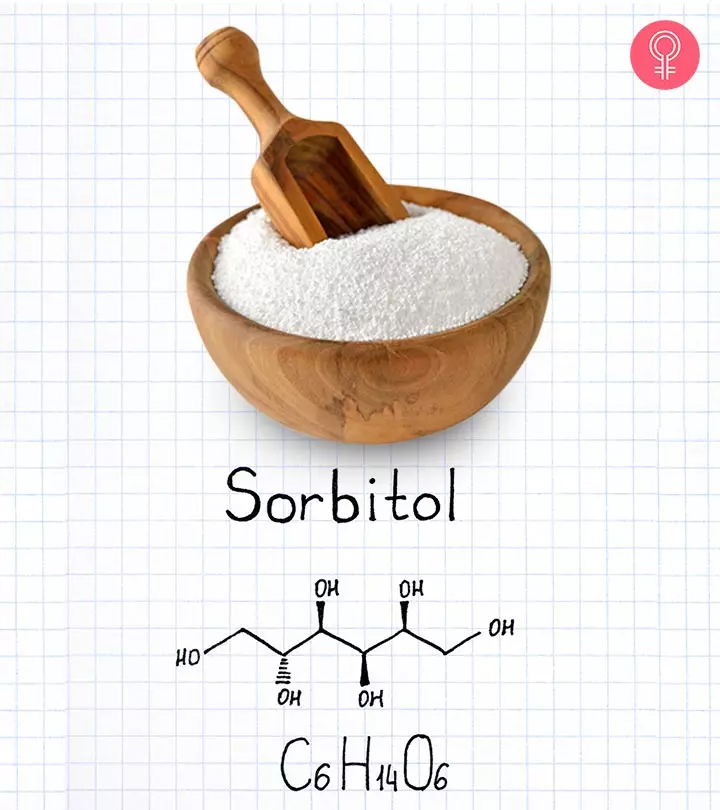
Image: Shutterstock
Sorbitol benefits your health in multiple ways, thanks to its lower calorie count. This sugar alcohol is used as an alternative to regular sugar and can often be found in sugar-free foods. It is said to promote dental health, and bone density, ease constipation, and serve as one of the best sweeteners for people with diabetes. Sorbitol is also said to improve skin health and cleanse your hair and scalp.
But are these claims scientifically backed? Is sorbitol really a healthier alternative to sugar? In this article, we have answered all these queries, explained the fundamentals of sorbitol, its daily recommended intake, and the potential side effects. So, let us get started first with knowing what sorbitol is!
 Know Your Ingredient: Sorbitol
Know Your Ingredient: SorbitolWhat Is It?
A type of sugar alcohol that occurs naturally in fruits.
What Are Its Benefits?
Promotes dental health, helps ease constipation, moisturizes the skin, cleanses the hair and scalp, and serves as a sweetener for those with diabetes.
Who Can Use It?
It can be consumed by everyone.
How Often?
Up to 30 g daily.
Caution
Overconsumption can be habit-forming and affect gut health.
In This Article
What Is Sorbitol?
Sorbitol a.k.a. glucitol is a sugar alcohol.
It occurs naturally in fruits like apricots, apples, peaches, nectarines, and dates. It can also be produced synthetically from glucose.
The most commonly used polyol in the United States is sorbitol. It is the standard sweetener in several sugar-free chewing gums and over-the-counter medicines. Sorbitol is 60% as sweet as sucrose and is much less expensive than xylitol.
Above all, sorbitol is almost a calorie-free sweetener with just 2 calories per gram. Only 50%-80% of it is absorbed in the small intestine. The remaining product is broken down by the intestinal bacteria, releasing gases. This is why some might feel bloated after consuming sorbitol regularly (1).
 Trivia
TriviaNow that we know what sorbitol is, let’s learn more about its purpose.
Key Takeaways
- Sorbitol is a sugar alcohol. You will find it frequently in food as a sweetener and in cosmetic products.
- It is a better alternative than sugar as it has fewer calories and helps in weight management.
- It also has laxative properties and can help relieve digestive issues in some individuals.
- It can help boost energy levels, as it houses many vitamins and minerals that are essential for health.
- Moderation is the key when consuming sorbitol as excessive amounts can adversely affect digestion and cause cramps and diarrhea.
What Is Sorbitol Used For?
Sorbitol is used as a sugar substitute in various food and pharmaceutical products. Its sweet taste, low-calorie content, and ability to retain moisture makes it popular in sugar-free and low-calorie food options like candies, chewing gum, and desserts. Sorbitol is also used as a humectant in baked goods to keep them from drying out. In the pharmaceutical industry, it is utilized as a sweetening agent for syrups and liquid medications to mask the bitter taste of certain drugs. Additionally, sorbitol’s laxative properties find application in laxative formulations that promote relief from constipation (2). Its versatility and low glycemic index make it a valuable ingredient for producing a range of sugar-free and diabetic-friendly products.
Well! A common question that usually comes to mind is- Is sorbitol safe? Ironically, sorbitol is harmless for those with diabetes. Sorbitol also has a list of unique benefits. Take a look!
5 Fascinating Benefits Of Sorbitol
1. Promotes Dental Health

One of the common dental health problems we face is caries. Dental caries is a bacterial disease in which diet is a major etiologic factor. Cutting down on sugar intake has failed as a strategy because people cannot stick to it. Normal sugar can lead to tooth decay and adversely affect gum health.
The current solution is substituting sugars with sugar alcohols, such as sorbitol, xylitol, and erythritol. Sorbitol, like other polyols, cannot be metabolized by many bacterial strains. When you consume foods containing sorbitol, the bacteria in your oral cavity will not be able to metabolize it to survive. So, dental plaques would become less severe or wouldn’t even form in the first place (2).
Here, it is crucial to read about erythritol benefits and even xylitol benefits. It will allow you to understand them better and how they both differ from sorbitol. Their glycemic index, degree of sweetness, and other adverse effects are believed to vary. Once you comprehend the differences between them, you will easily be able to bring them into usage.
2. Eases Constipation

Sorbitol has a mild laxative effect. Though this property is debatable, it is said that sorbitol can relieve severe constipation. Consuming large amounts, about 7-14 g per day, can ease your bowel movement.
This happens because sorbitol is an osmotic laxative (3). It helps in holding and drawing water in the stools. This helps the stool soften and move easily through the tract.
Since making sorbitol is cheaper and relatively harmless, it can be a low-cost alternative to treat constipation in children and the elderly (3). But do keep in mind that sorbitol may also lead to diarrhea, if used in excess for long periods (2).
3. Ideal Sweetener For Diabetic Individuals
Generally, those who have diabetes are asked to stay away from sugar or glucose. In such cases, using sugar substitutes, like sorbitol, is an excellent way of not missing out on desserts.
Sorbitol is only partially absorbed (about 50%-80%) by the intestine and gets converted to glycogeni A complex carbohydrate in the liver and muscles that is the stored form of the body’s primary energy source, glucose. in the liver. While it’s difficult to say if it’s capable of insulin resistance, a study supports the fact that sorbitol doesn’t shoot up blood sugar levels (12). It is also absorbed in an insulin-independent fashion and doesn’t cause concomitant hyperglycemiai A condition with high overnight fasting glucose levels in the body that may cause cardiovascular complications and other health issues. (like glucose or sucrose).
However, there is no evidence that sugar alcohol-sweetened products have any benefit on long-term glycemic control in people with diabetes (4). It also does not contain any antioxidant properties of its own.
Guess What!
- Sorbitol gets absorbed better if you take it along with glucose. Consuming sorbitol in a meal works better than taking it as a stand-alone supplement, both orally and intravenously.
- Almost all the chewable tablets and chewing gums have sorbitol as an added artificial sweetener.
- There is no evidence that artificially sweetened (with sugar alcohols) products can result in weight loss. They can give you less ‘sugar’ and less energy compared to their counterparts.
- We have inconclusive data about the relationship between sugar intake and weight gain. So, let’s not presume!
4. Protects Your Skin

The human skin maintains an optimal barrier function that varies considerably in humidity. Results from several in-vitro experiments showed that 50 mM sorbitol protected epidermal keratinocytesi Cells in the skin's epidermis that form a protective barrier against pathogens and other environmental factors. from osmotic toxicity induced by sodium chloride (in humid conditions) (5). Further, a study on the cellular effects of polyethylene glycol (PEG) derivatives found that sorbitol solutions showed no cytotoxic activity (11).
Sorbitol exhibits significant improvement in both skin barrier repair and moisturization. Studies claim that this healing effect was more pronounced in individuals from dry and arid environmental conditions (5).
This proves that sorbitol can double up as a good skin moisturizer and shield it against harsh climate changes.
 Quick Tip
Quick Tip5. Cleanses Your Scalp And Hair

Sorbitol is going to be your best friend if you have a scalp that quickly accumulates dirt and grime. The sorbitol molecules in the shampoos bind to the dirt and oil on your scalp. They make dirt more water-soluble and help remove it from the scalp. Sorbitol is, hence, a potent surfactant.
Interestingly, sorbitol can trap and retain water too. In chemical terms, sorbitol is a humectant. Along with washing away the dirt, it can also lock the moisture in your scalp.
So, sorbitol is a mild surfactant that keeps your scalp and hair away from dryness, dirt, and infections (6).
Tell me honestly, don’t you want to switch to sorbitol and chuck sugar immediately?
I almost did. But the ‘wiser me’ prompted me to understand more about the fate of sorbitol in our body. What happens if there’s an overdose of sorbitol? And how much sorbitol can you take in a day?
How Safe Is Sorbitol As A Sugar Substitute?
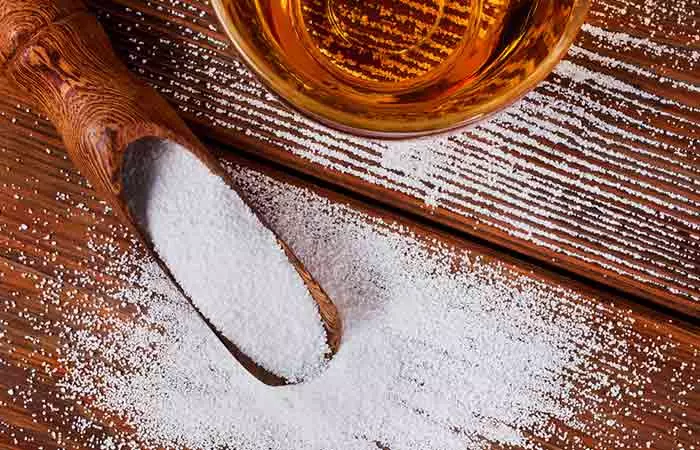
There are no major side effects of ingesting small amounts of sorbitol. It is, anyway, used in many desserts and bakery foods.
– But an overdose of sorbitol, about 20g-50g, can lead to severe diarrhea and stomach cramps. In some people, as little as 5g of sorbitol may cause bloating and gastric distress. This is also because sorbitol gets metabolized slowly and is absorbed only partially (7). In severe cases, you might have to visit a doctor and take medication to get diarrhea relief.
– The bigger issue with such artificial sweeteners is carcinogenicity. In the 1970s, saccharin and a bunch of other sweeteners were linked to a number of health problems, including cancer. But according to the National Cancer Institute and other health agencies, there’s no sound scientific evidence that any of the artificial sweeteners approved for use in the United States cause cancer or other serious health problems (8). It is also unidentifiable whether sugar sweeteners can lower cancer risk.
Psst!
- Look for sugar alcohols on the ingredient list on a food. Some examples of sugar alcohols are erythritol, hydrogenated starch hydrolysates (HSH), isomalt, lactitol, maltitol, mannitol, sorbitol, and xylitol
- Ingredients are listed in descending order by weight. Meaning, the closer they are to the beginning of the list, the more of the ingredient is in the food.
Well, now that it’s all clear, you can comfortably use sorbitol as a sugar substitute. It is considered safe for all, including diabetic individuals.
Long-term use of sorbitol can affect gut health, it should be taken carefully without making it a daily routine. Remember, don’t let your daily intake of sorbitol be more than 50 g.
M. Van De Velde, a blogger, shared her food habits while struggling with anorexia. She mentioned that when she started eating chewing gum, she would consume around 5-6 packs at once. She writes, “Chewing gum can cause a lax effect when consumed in excessive amounts (due to sorbitol), but in my case, it only happened once, and the rest of the time it only resulted in a bloated stomach which is even worse (i).”
If you wish to avoid sorbitol for obvious reasons, you could try xylitol and mannitol. What work best, at the end of the day, are natural sweeteners like honey, maple syrup, or date syrup.
Note: If you are unclear about including sorbitol in your diet, always get advice from a healthcare provider. They can help you decide the best course of action depending on your dietary goals and health needs.
The Take Home Message…
Gone are those days when people used artificial sweeteners in food and beverages. Sugar alcohols are the new low-cal sugar alternatives in the market.
Sorbitol is one of the simplest, cheapest, and safest sugar substitute. It is metabolized slowly in the small intestine and hence has less effect on the plasma glucose levels.
Infographic: 5 Ways Sorbitol Improves Your Health
This low-calorie sugar alcohol is a better alternative to regular sugar. From promoting oral health to improving your hair, it can help in several ways. Though its benefits are discussed already, the infographic below will give you a better understanding of how it helps your health. Check it out to know more.

Illustration: StyleCraze Design Team
Sorbitol is a sugar alcohol naturally found in some fruits. This water-soluble compound is used as an alternative to regular sugar. Sorbitol benefits your health in numerous ways. For example, it promotes dental health, provides constipation relief, serves as an ideal sweetener for those with diabetes, moisturizes the skin and repairs the skin barrier, and also helps cleanse the scalp and hair. However, long-term use of sorbitol may cause gut issues. Hence, use this sugar substitute in moderation to enjoy its benefits.
Frequently Asked Questions
Are bananas high in sorbitol?
Anecdotal evidence suggests that bananas carry low amounts of sorbitol and are safe for consumption. However, studies need to be conducted to support this claim.
Does sorbitol affect sleep?
No, sorbitol does not affect sleep. However, studies suggest that it may increase the level of arousal threshold in sleep (hard to wake up easily) (9).
Is sorbitol good for acid reflux?
Yes, studies suggest that the sorbitol present in sugar-free chewing gums may reduce acid refluxi A gastrointestinal condition caused due to the leakage and flow of stomach acid back into the esophagus. (7), (10).
Illustration: Sorbitol – Everything You Need To Know
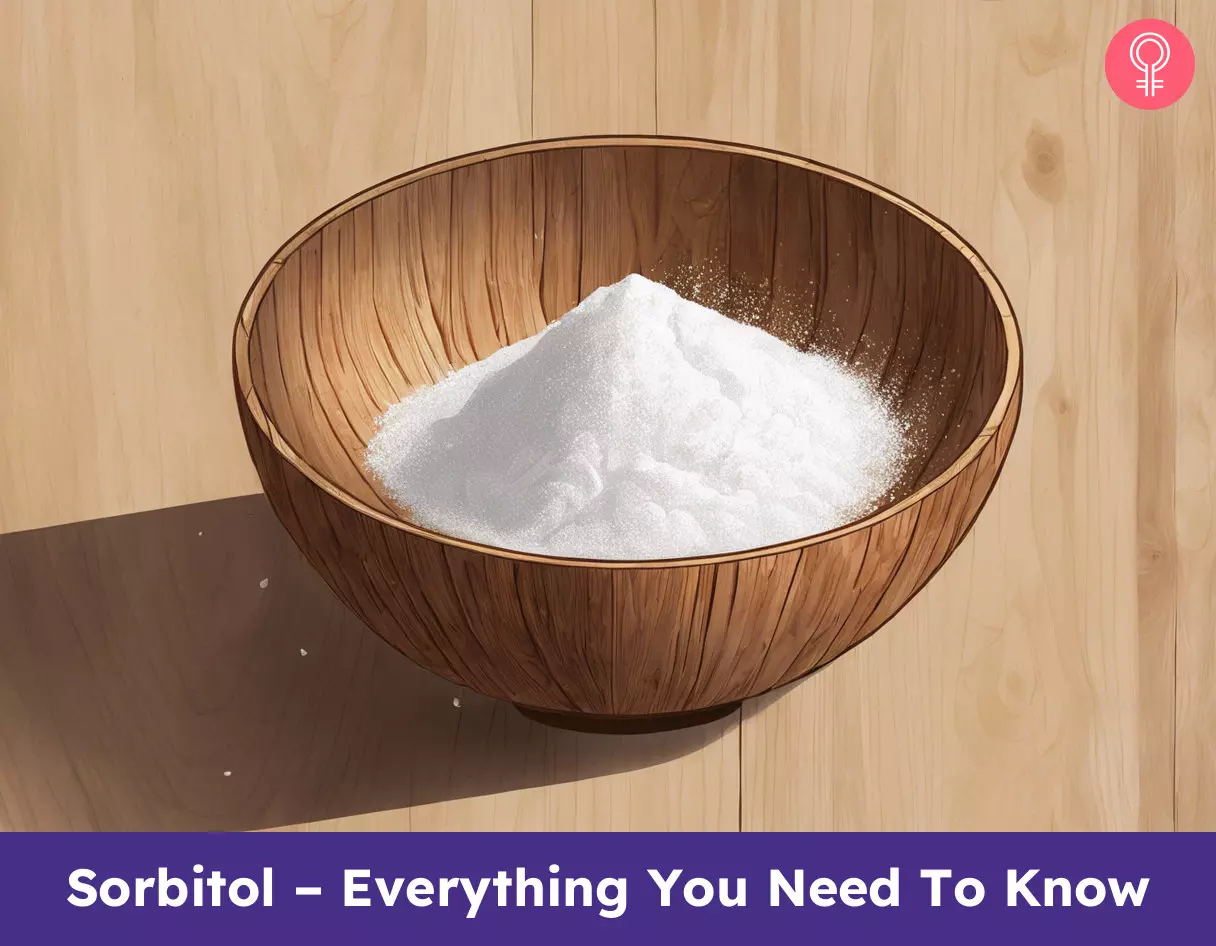
Image: Stable Diffusion/StyleCraze Design Team
Unveil the mysteries of sorbitol in skincare and witness its magical effects on your skin. From hydration to softness, this video explores the beauty-enhancing benefits of sorbitol.
Personal Experience: Source
StyleCraze's articles are interwoven with authentic personal narratives that provide depth and resonance to our content. Below are the sources of the personal accounts referenced in this article.
i. My struggle with anorexia & fasting diaryhttps://medium.com/@luxuryluxembourg/my-struggle-with-anorexia-and-fasting-diary-1b0873e02e27
References
Articles on StyleCraze are backed by verified information from peer-reviewed and academic research papers, reputed organizations, research institutions, and medical associations to ensure accuracy and relevance. Read our editorial policy to learn more.
- “The metabolism of sorbitol in the human subject”
- “Cost-effective treatment of constipation in the elderly….” The American Journal of Medicine
- “The use of sorbitol and xylitol sweetened chewing gum in control ”
- “Sugar Alcohols and Diabetes: A Review” Canadian Journal Of Diabetes
- “Effect of seasonal and geographical differences on skin…” Journal of Cosmetic Science, US National Library of Medicine
- “Shampoos: Ingredients, efficacy and adverse effects” Journal Der Deutschen Dermatologischen Gesellschaft
- “Sorbitol: ” Often forgotten cause of osmotic diarrhea
- “Artificial Sweeteners and Cancer” National Cancer Institute
- “Sweetness induces sleep through gustatory…” US National Library of Medicine
- “The effect of chewing sugar-free gum…” PubMed
Read full bio of Madhu Sharma
Read full bio of Swathi Handoo
Read full bio of Ravi Teja Tadimalla
Read full bio of Aparna Mallampalli







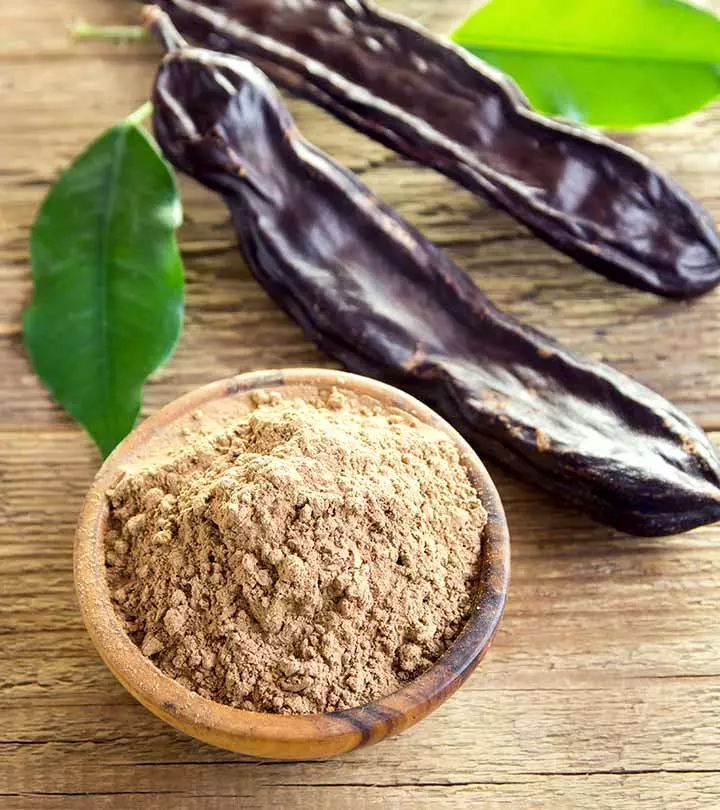
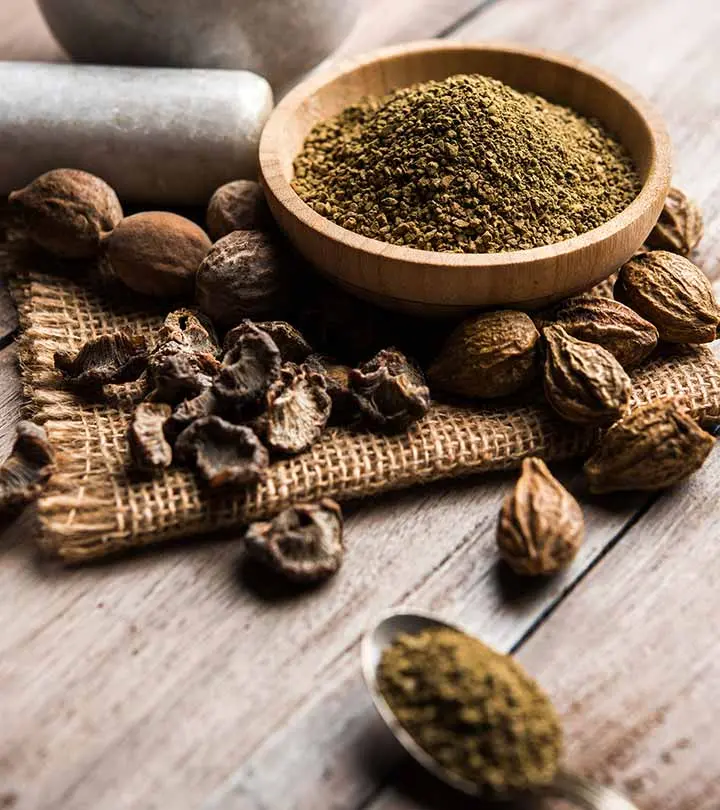
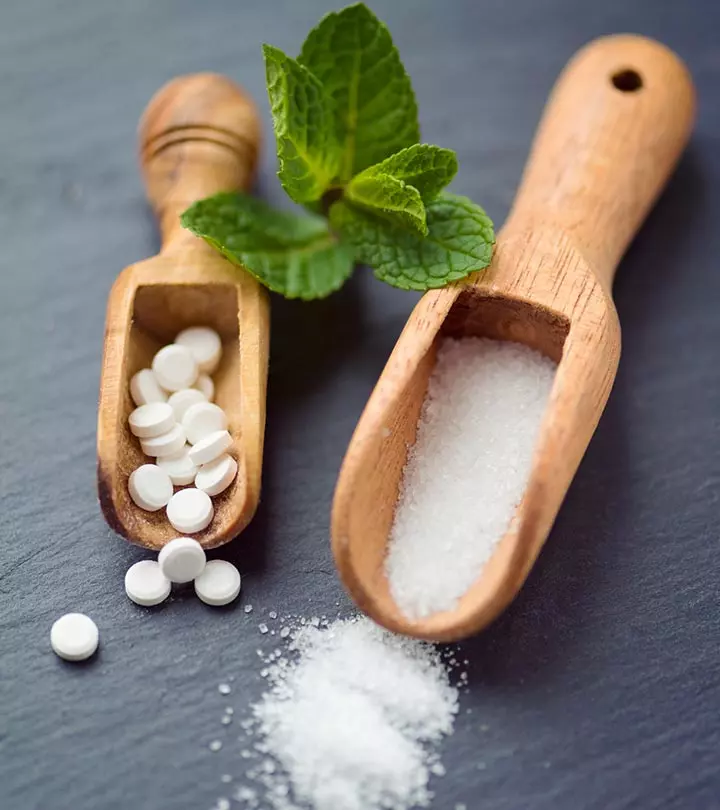
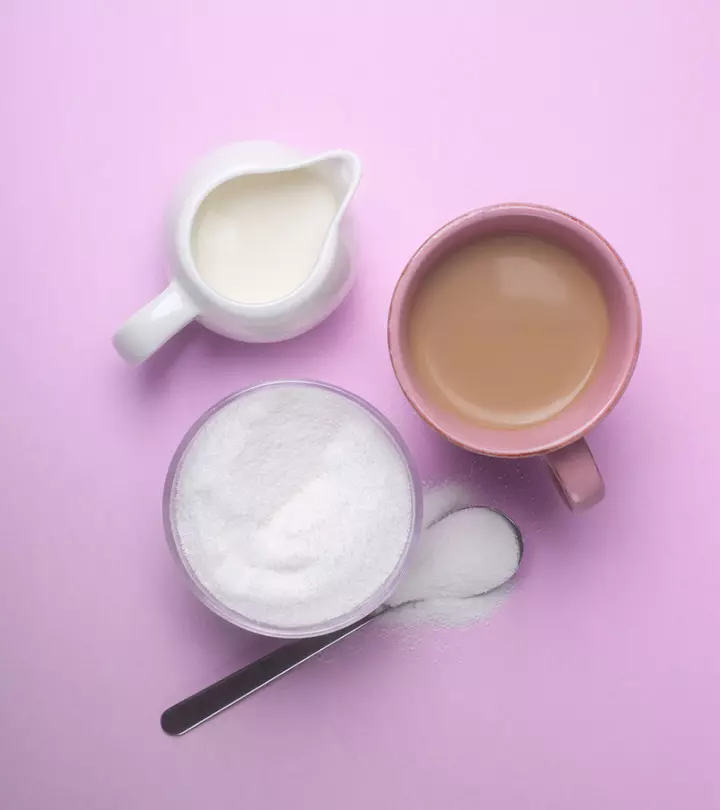
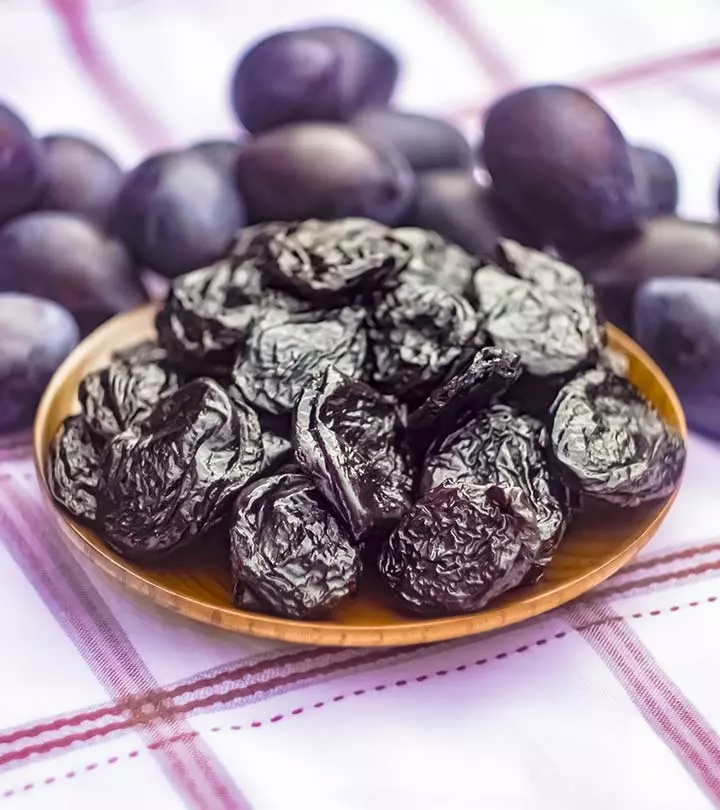


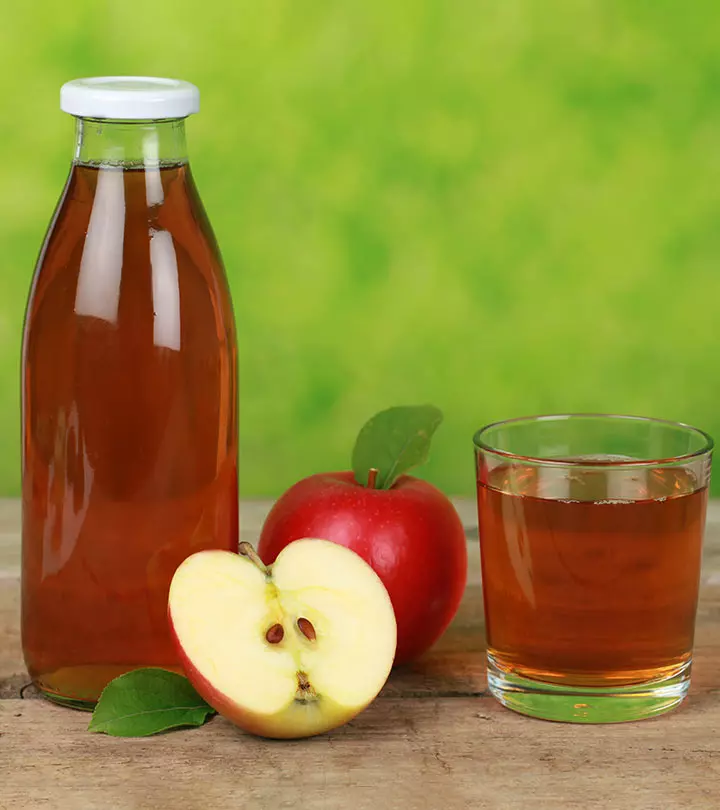


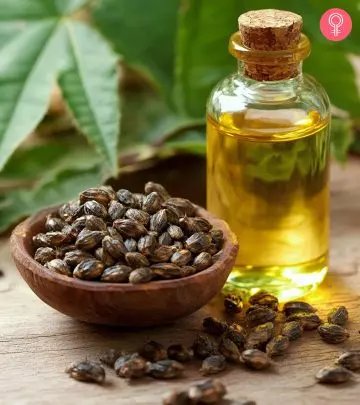







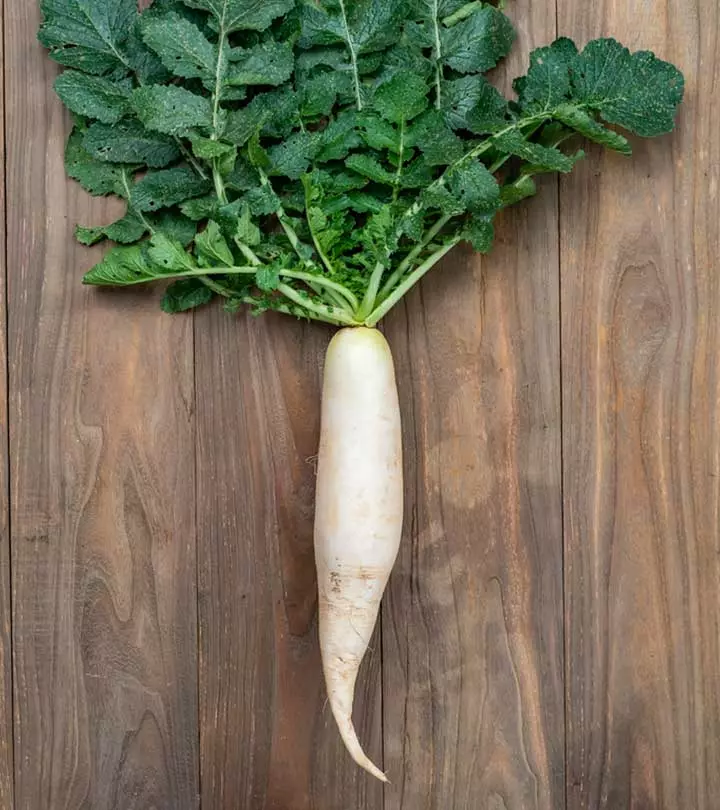
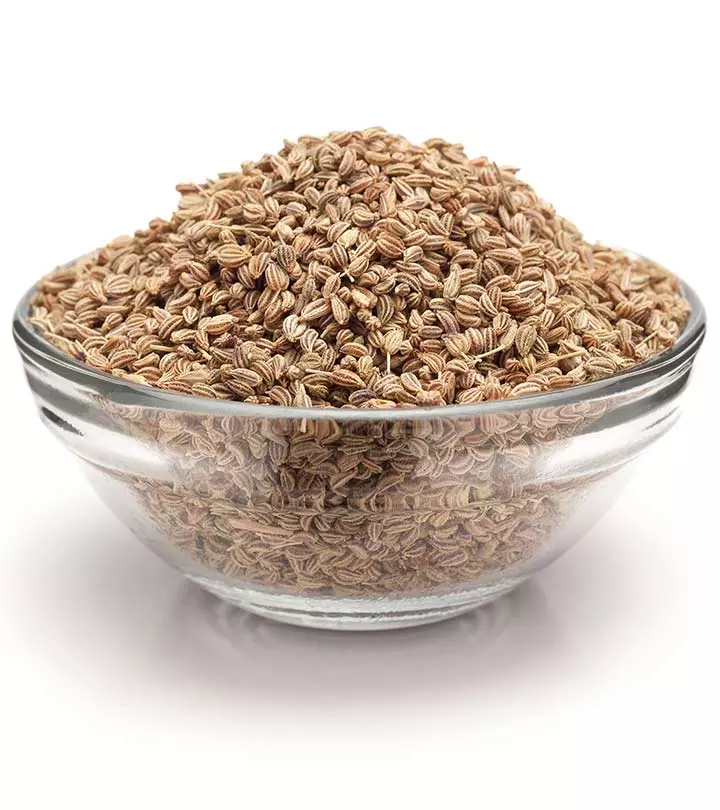
Community Experiences
Join the conversation and become a part of our empowering community! Share your stories, experiences, and insights to connect with other beauty, lifestyle, and health enthusiasts.